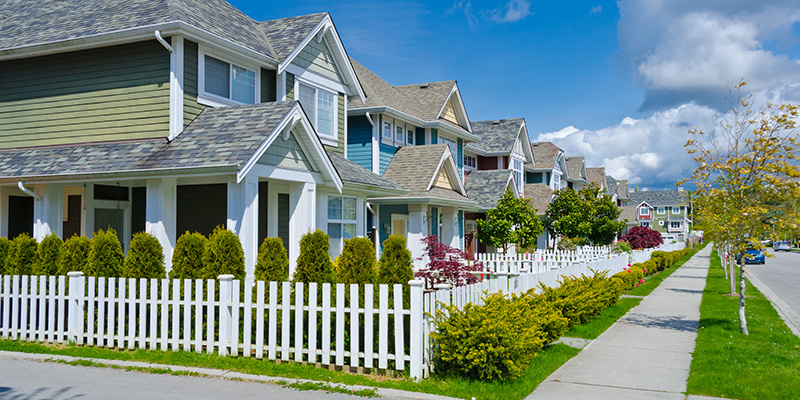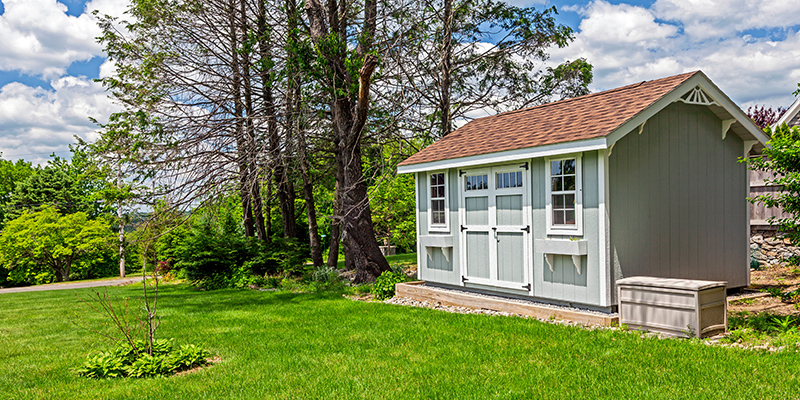HOA Rules And Regulations 101

Whether you are just moving into an HOA-run community or have already lived in one for years, it is important for you to get to know your HOA rules and regulations. But, what are these rules anyway? And who decides what rules to make?
Browse By Category
Sign up for Our Newsletter
Whether you are just moving into an HOA-run community or have already lived in one for years, it is important for you to get to know your HOA rules and regulations. But, what are these rules anyway? And who decides what rules to make?
What Are HOA Rules and Regulations?
A homeowners association’s rules and regulations dictate what members of the community can and can’t do. The rules are a part of the association’s governing documents, which also include the CC&Rs and bylaws.
When you first purchase a home in a community managed by an HOA, you will receive a copy of its rules and regulations along with other governing documents. You can also request a new copy of the rules from your HOA board in case you lose yours. Some associations have community websites and post a copy of their governing documents there.
HOA Rules and Regulations vs CC&Rs vs Bylaws
What is the difference between the CC&Rs and an HOA’s rules and regulations? What about bylaws?
The Declaration of Covenants, Conditions, and Restrictions (CC&Rs) explain the rights and obligations of homeowners. It typically covers property use restrictions, assessment obligations, insurance obligations, maintenance obligations, and the like.
An association’s bylaws, on the other hand, dictate the structures and procedures of HOA governance. It typically specifies the duties and responsibilities of the board, how often board meetings should occur, how elections should take place, quorum requirements, and the like.
In contrast, the rules and regulations of an association cover the things that are not included in the CC&Rs and bylaws. These rules can also serve as an additional guide — a way to make the covenants and bylaws clearer for all the members. Notably, in the hierarchy of governing documents, an association’s CC&Rs and bylaws take precedence over the rules and regulations.
Rules and regulations are usually easier to amend. They generally don’t require a vote from the membership and only require a majority vote from the board. In comparison, the CC&Rs and bylaws are harder to amend since they normally require majority approval from the members of the association.
The Importance of HOA Rules and Regulations
Some homeowners may feel that an association’s rules are impractical or ineffective. More often than not, these sentiments come from a place of displeasure or judgment. They feel the rules are too restrictive and would rather not have them at all.
But, these rules do serve a purpose. Aside from acting as an aid to enforce the HOA’s CC&Rs and bylaws, rules and regulations help preserve the curb appeal of the neighborhood and protect property values. Without rules, the community would fall into disarray, which will undoubtedly affect the aesthetic of the area and the values of the homes.
Creating and Changing HOA Rules and Regulations
 One question that many homeowners ask is, “Who makes the rules?” The answer is simple — the HOA board.
One question that many homeowners ask is, “Who makes the rules?” The answer is simple — the HOA board.
In any given HOA community, it is the board that takes charge of creating and changing the rules. As explained above, the rules are more flexible than the CC&Rs or bylaws and can, therefore, undergo changes as the situation calls for them. The board will propose to enact a new rule or update an existing one and will then put it to a vote.
Before voting, though, they will present the change to the members of the community by sending out a notice. The board will give the members enough time to review the rule change and voice their thoughts. The board then takes the feedback into consideration before making a final decision.
The exact process for creating and changing the rules will really depend on your association. Every community has its own set of policies and procedures. As such, it is important to check your governing documents for guidance.
Enforcing the Rules and Regulations in a Community
Who enforces the rules in a homeowners association? As with creating and changing the rules, it is the board that assumes this responsibility. The board should monitor the community for violations and take action as needed.
In some communities, the board delegates the task of enforcing the rules to a committee. This committee will be in charge of inspecting the neighborhood for violations, sending out violation notices, and scheduling disciplinary hearings. Depending on the association, some compliance committees may even recommend rule changes to the board.
Can the Police Enforce HOA Rules?
Generally speaking, the police don’t hold power over HOA rules. That means they can’t enforce the rules in your community. The exception to this is when the rules overlap with the law. For instance, your HOA may have a rule restricting parking on public streets. In that case, if your local laws also prohibit the same, the police may step in.
What to Include in Your HOA Rules and Regulations
Typical HOA rules you should consider include:
1. Architectural Change Request Policy
Perhaps the most common rules in any given HOA have to do with architectural changes. Associations must maintain the aesthetics of the community. Therefore, homeowners aren’t given total freedom when it comes to altering the exterior of their homes.
It’s a good idea to have a set of guidelines detailing the architectural changes homeowners aren’t allowed to make. Additionally, you should have a request application process that homeowners must follow if they want to make any alterations. Ask for the specific changes they want to do, what contractor they plan to hire, and how long the project will take.
2. Collection and Late Dues Policy
 Every homeowners association should have a collection policy for dues. Define the deadline of dues and whether homeowners should pay them on a monthly, quarterly, or annual basis. You should also clearly state what consequences members can expect if they pay their dues late or not at all.
Every homeowners association should have a collection policy for dues. Define the deadline of dues and whether homeowners should pay them on a monthly, quarterly, or annual basis. You should also clearly state what consequences members can expect if they pay their dues late or not at all.
Generally, your rules on dues collection should answer the following:
- When should homeowners pay their dues?
- How should homeowners pay their dues?
- Will you charge a late fee for late payments? If so, how much?
- Will you refer delinquent accounts to a third-party collection agency?
- What other penalties will homeowners face as a result of unpaid dues?
3. Common Area Rules
Common area rules are rather simple — they dictate how common areas should be used, how members should behave in these spaces, and any occupancy limits. You should also make it clear to members that they should pick up after themselves, their guests, and any pets when they are in common areas.
4. Maintenance Rules
Typically, homeowners are responsible for maintaining their own properties. This includes keeping their driveways clean, their lawns mowed, and their trees trimmed. Trash and recycling should be in a specified area as well.
In some communities, the HOA will simply hire a landscaping company or trash removal service to take care of this for everyone. Of course, such expenses will be included in the budget for all members to share.
5. Noise Restrictions
From late-night parties to bands practicing in the garage, noise is one of the most complained-about nuisances in any community. To maintain peace and quiet, associations should include noise restrictions as part of their rules and regulations. Even something as small as prohibiting loud noises from 10 p.m. to 7 a.m. is enough to curb noise-related complaints.
6. Parking and Towing Rules
Believe it or not, most associations do have the power to regulate parking and vehicles in the neighborhood. These restrictions, though, will depend on the needs and nature of your community (gated vs non-gated). For aesthetic purposes, you may only allow owners to park their vehicles inside their garage or in designated lots. There are also some HOAs that ban specific types of vehicles, such as commercial vehicles, trucks, RVs, and boats.
7. Pet Rules
It is common for HOA communities to enact certain pet restrictions, including but not limited to:
- Number of pets owners can keep
- Types of pets
- Pet breeds
- Size or weight restrictions
- Prohibiting pets considered “dangerous”
- Requiring owners to keep pets on a leash or in a cage in common areas
- Requiring owners to pick up after their pets
- Prohibiting pets from entering certain common areas
Some associations even ban pets altogether. Be careful not to clash with state or local laws, though. For instance, in California, homeowners associations can’t prohibit members from keeping at least one pet.
8. Playground Rules
 While playgrounds are part of an association’s common areas, they deserve their own spot on this list. Playgrounds are known to be liability magnets for homeowners associations. To combat this and to keep children safe, consider adopting the following rules:
While playgrounds are part of an association’s common areas, they deserve their own spot on this list. Playgrounds are known to be liability magnets for homeowners associations. To combat this and to keep children safe, consider adopting the following rules:
- No fighting, throwing of objects, or any type of rough play allowed
- Require parents to supervise their children at all times
- Only allow children to use playground equipment as intended to minimize accidents or injury
- Only open the playground during daylight hours
- Close the playground during inclement weather
- Close the playground if the equipment is wet or damaged in any way
9. Privacy Policy
Board members deal with sensitive and personal information all the time. As such, there is always a risk of compromising confidential details. To prevent this, make sure to come up with a solid privacy policy, such as only allowing certain board members to handle cheques, delinquent accounts, etc.
Additionally, you should create a policy that regulates security cameras. The HOA should only install these cameras in common areas and never point them at any space where members have a reasonable expectation of privacy. The same goes for homeowners who install security cameras in or outside their homes. The cameras should never point to a neighbor’s window.
10. Rental Policy
If your association allows rentals, make sure to have a clear set of guidelines regulating them. It’s a good idea to establish an application process, where you can ask for the tenant’s details. You should also make it clear to homeowners that they will be responsible for any damages or violations their tenant commits.
11. Selling the Property
When homeowners decide to sell their property, make it a requirement to notify the association. You should also make sure that the seller informs all potential buyers of the existence of the HOA.
12. Violation and Fine Policy
It is equally important to have a policy for monitoring and penalizing violations. Normally, the HOA board, manager, or compliance committee will take care of this. When an owner breaks the rules, you will typically start with a violation letter detailing their offense and any related penalties. The owner will receive a chance to defend themselves at a disciplinary hearing.
The specific requirements of the notice and the hearing will depend on your state laws and governing documents. For instance, California law requires at least 10 days’ notice before the hearing and even more if the penalty involves suspending the member’s privileges.
You should also consider creating a structure for imposing fines. For example, you may want to charge a $50 fee for smaller violations and $100 for serious violations (those that jeopardize the safety of people). You can also use an escalating fine system, with fines growing for each similar succeeding offense.
Can Homeowners Change the Rules?
Contrary to what some may believe, homeowners do hold power in this scenario. While the board generally makes the rules, homeowners can express their opinions when a rule change is proposed. Homeowners should make it a habit to attend board meetings regularly. This way, they can stay updated and participate in open discussions. If an existing rule is bothering a homeowner, they can talk to the board or submit a formal letter.
Homeowners should never stop paying their dues as a way to retaliate, though. Keep in mind that homeowners have an obligation to pay dues and the association can take action against delinquent homeowners if need be.
When Homeowners Don’t Follow the Rules
When you buy a home in a community run by a homeowners association, you automatically become an HOA member. That means you agree to abide by the rules and regulations of the association. What happens if a homeowner fails to follow the HOA rules and regulations?
- Violation Letter. As previously stated, most violations start out with a written letter or notice. This will state the member’s violation, any penalties involved, and the details of the hearing.
- Monetary Fine. Fines are a tried-and-tested way to enforce an HOA’s rules.
- Suspension of Privileges. Depending on state law and the governing documents, an HOA may be able to suspend a member’s privileges as a consequence of violating the rules.
- Legal Action. Violations are considered civil matters between two parties — the HOA and the member. To resolve the issue, either party may initiate mediation proceedings or even a lawsuit.
- Liens and Foreclosures. As a result of unpaid dues or fines, an HOA may have the ability to place a lien on a member’s property and subsequently foreclose on that lien.
Unenforceable HOA Rules
 There are a few ways rules can become unenforceable. The first is when the rule contradicts the federal, state, or local laws. Popular examples of this include:
There are a few ways rules can become unenforceable. The first is when the rule contradicts the federal, state, or local laws. Popular examples of this include:
- Forbidding the display of the U.S. flag (conflicts with the Freedom to Display the American Flag Act of 2005)
- Banning satellite dishes (conflicts with the OTARD Rule)
- Prohibiting clotheslines (conflicts with Right to Dry laws in certain states)
Rules are also considered unenforceable if:
- They were not enacted in accordance with the requirements stated within the association’s governing documents;
- The HOA board has no authority to enact such a rule;
- They are enforced inconsistently or selectively; and,
- They contain vague language.
The Key to Harmonious HOA Living
HOA rules and regulations exist for a reason — to maintain peace and order in the community, preserve curb appeal, and protect property values. Homeowners must do their best to abide by the rules to foster better harmony in the association. Similarly, the HOA board must always put the community’s best interest first.
It’s not always easy to stay on top of your HOA’s rules and regulations. For that, you need an HOA management company. Look for the best one in your area today using our comprehensive online directory.
RELATED ARTICLES:
- What Are Unenforceable HOA Rules? What To Do About Them?
- HOA Noise Rules: Can Homeowners Complain About Neighbor’s Party Noise
- 6 Tips On How Can HOA Enforce Rules And Regulations
Trending Now
Related Article
Sign up for Our Monthly Newsletter
Sign up below for monthly updates on all HOA Resource

















